Why Bryan Ferry is a modern master of love songs
As he marks 50 years as a solo artist, there’s good reason this music icon is being widely celebrated.
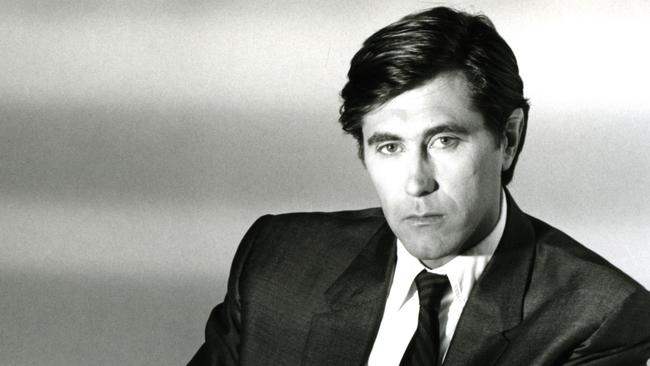
Music
Don't miss out on the headlines from Music. Followed categories will be added to My News.
Bryan Ferry used to “smoke for England.”
There he is with a cigarette in hand on the cover of Retrospective, his extensive selection of songs from his 50-year solo career.
Inside the boxed set is a booklet with dozens of photos of this suave, sophisticated music maker, and a little less than half of the images also feature Ferry with a durry.
The 79-year-old singer says he gave up smoking about 15 years ago but points out he is holding a pencil as if it was a cigarette as he sits in his office at his London studio.
“It’s a tribute to the old days,” he says, laughing when asked about the smokey photos.
“When I was a young lad and had the newspaper round, the newsagent had masses of different kinds of cigarettes and packages, the American and French (brands) … and I would try them all. It probably made me a bit husky.
“Every movie I saw growing up had someone with a cigarette in the best scenes, it was very much part of the culture.”
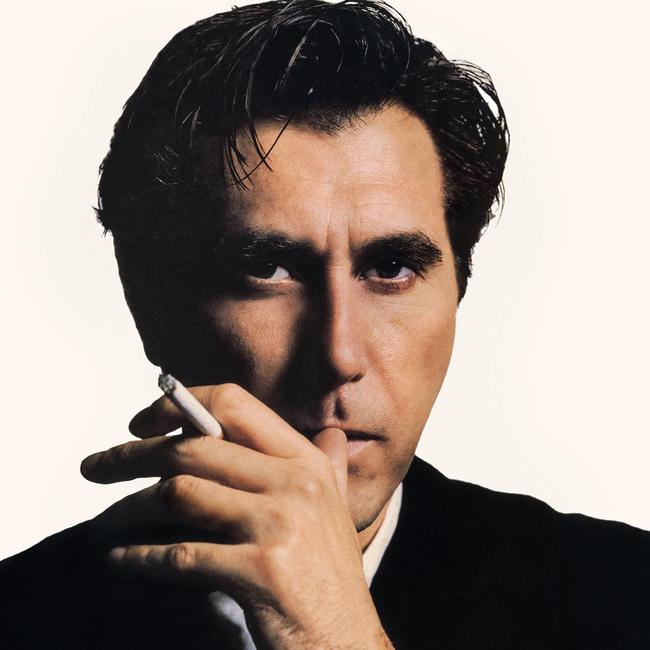
Ferry entrenched himself in pop culture in the early 1970s with his art-rock band Roxy Music, bringing a chic glam to the British music scene with their album covers featuring the hot models of the day, their satin and leopard print costumes and the frontman’s stylish suits. He became popular in Australia via the seminal music video show Countdown.
But Ferry was an outlier from the beginning, establishing a solo career in 1973 with his debut record These Foolish Things, a collection of covers of some of his favourite songs which was released just eights months after the second Roxy Music album For Your Pleasure.
It seemed madness to have two competing album projects and the record label powers-that-be urged him to concentrate on one or the other. Eventually, he agreed with them and in 1983, after the Avalon tour, the band split up.
“A couple of people were telling me to consider doing just one thing, especially after Avalon, which was actually our first really big hit album as a group. There weren’t many constrictions for me being in my band, but I just thought I would do it on my own,” he says.
Ferry hand-picked the 81 songs for the Retrospective collection, being released on October 25, and devotes a big chunk of the tracklist to his inventive and distinctive covers.
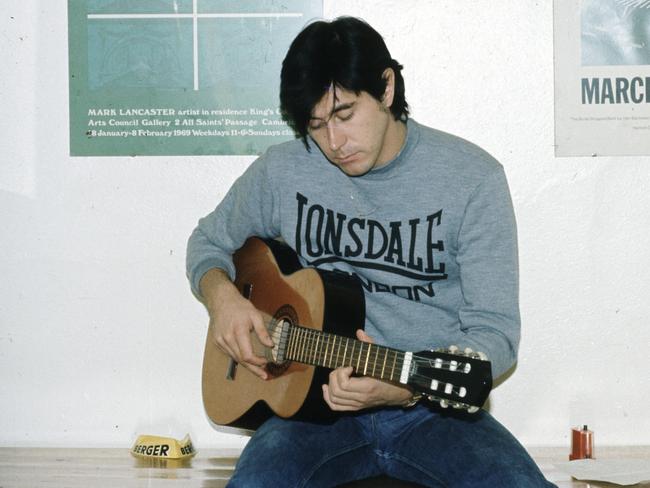
The first cover he recorded back in 1973 was Bob Dylan’s A Hard Rain’s-a-Gonna Fall. He further celebrated his fandom of the legendary singer-songwriter with the Dylanesque album of covers in 2007.
Unsurprisingly, Ferry has never heard from Dylan or anyone close to the legend about his covers. No doubt Dylan would have enjoyed the boost to his publishing royalties from the English singer’s record.
Ferry recalls Dylan looked “bored” when he was invited to sing in Stockholm in 2000 when the American legend was awarded the Polar Music Prize.
“I love his songs, the lyrics are beautiful and poetic, marvellous imagery, and they seem to suit me,” he says.
“He was in the audience once, when I played at the Polar Music prize, and that was kind of daunting. It was surreal, because I Did A Hard Rain’s-a-Gonna Fall, and he’s just sitting there, maybe (thinking) ‘Oh this is dreadful, how embarrassing … destroying my song.’”
Baz Luhrmann clearly thought quite the opposite after hearing another of Ferry’s wildly unconventional projects.
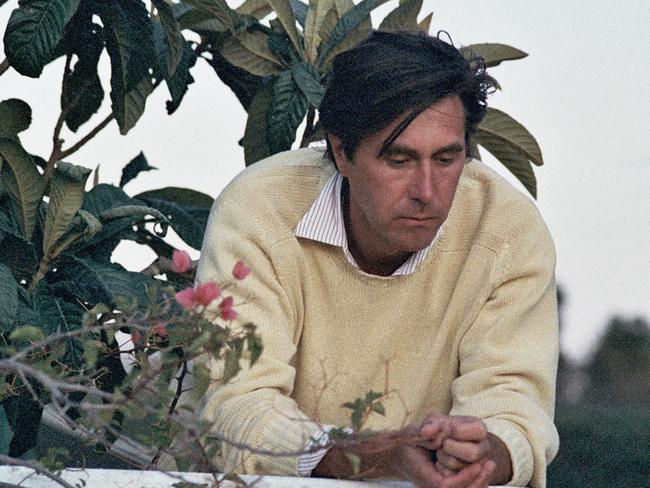
The Roxy Music star created another band, the Bryan Ferry Orchestra, to celebrate his love of 1920s jazz and released their retro versions of his hits on The Jazz Age album in 2012. Luhrmann was putting the finishing touches to his The Great Gatsby film when he heard it, and approached Ferry about contributing songs to the film soundtrack.
With the Bryan Ferry Orchestra, he produced new versions of the Roxy Music hit Love Is The Drug and Beyonce’s Crazy In Love, sung by Scottish artist Emelie Sandé for the film’s soundtrack.
“He came here to the studio – he’s full of energy as you would know – and that opening scene of Gatsby was really powerful; he’s great at those party scenes and cameras flying around,” Ferry said.
“We didn’t do much (music) for it, I did more for Babylon Berlin, the German TV series, which was really well done, so convincing.”
Ferry is one of the modern masters of love songs, the ones that soundtrack the yearning and torture of it all. Slave To Love, Love is the Drug, The Price of Love, More Than This and the desperate plea of Let’s Stick Together.
“They are always the best songs. It’s the universal language so people relate to it, which is why there are so many great intimate songs about me and you,” he says.
“There were some non-love songs with Roxy like Manifesto.”
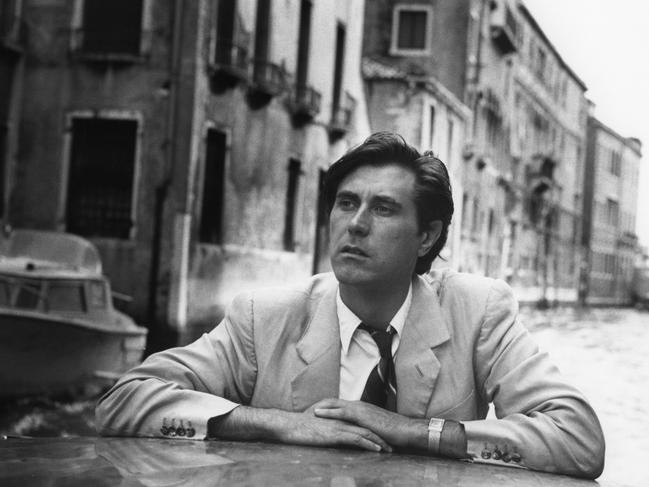
Ferry has had his own great loves, notably Jerry Hall who featured on the cover of the Roxy Music album Siren and left him for Mick Jagger in the late ’70s. He was married for more than 20 years to London socialite Lucy Helmore, who was the model on the cover of the Avalon album and mother to their four sons. He has kept details about his love life private in recent years.
But when asked if he loves being in love and all its euphoria and mystery, Ferry gets quite flummoxed.
“I don’t know … that’s a kind of off-piste question. You’re making me blush. Dunno … it comes in many shapes and forms,” he finally says.
“I guess my love songs are not so much breakfast jingles, they’re more like night music.”
Bryan Ferry’s Retrospective (1973 to 2023) will be released on October 25
More Coverage
Originally published as Why Bryan Ferry is a modern master of love songs





